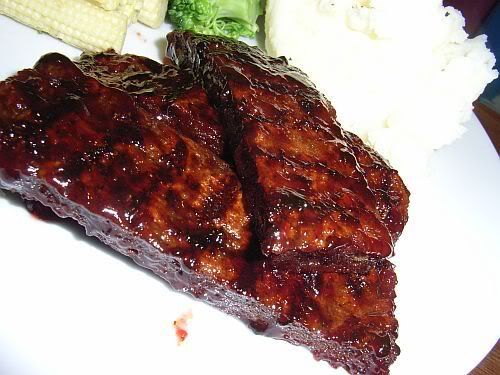I want to re-print an important section which happens to be in the Intro of the book. The science is solid and doesn't seem to have changed much over the years, regarding sugar highs. If anything, modern science further validates the information below.
Sugar Consumption Can Give You a "High"--and Low
The term sugar high generally refers to the quick burst of energy you experience when you eat a concentrated simple sugar--a candy bar or other snack made primarily of table sugar--on an empty stomach. What you're really feeling is a rapid, dramatic rise in blood glucose (the digested form of sugar). Your pancreas responds (in the nondiabetic person) to this rise in glucose with a similar outpouring of insulin that brings your glucose level back to the normal range.
This rapid rise and subsequent fall of glucose in the blood has consequences. The energy "high" you experienced in the minutes following ingestion of simple sugar is followed by an energy "low" (this effect can be very pronounced in children, who react quickly and dramatically to biochemical changes in the body).
For some people, the low is accompanied by feelings of irritability, sluggishness, and overall malaise. To counteract these effects, you may decide to help yourself to yet another serving of sugar--which can lock you into a vicious cycle characterized by mood swings and alternating energy peaks and valleys.
A better strategy for maintaining energy is to eat complex carbohydrate foods, which include fruits, [whole] grain products, and vegetables. It takes time for the body to digest these foods and break them down into simpler sugars that can be absorbed into the bloodstream (a simple sugar food is already broken down, so its sugar rushes into the bloodstream almost instantaneously) and from there, into the cells for use as fuel. This relatively slow process permits a steady, more measured flow of sugar into the blood; you avoid energy highs and lows, keep your blood glucose level steady, and generally feel better.
--page xvi Introduction, written by Elliot J. Rayfield, M.D., The All-Natural Sugar-Free Dessert Cookbook
This pretty much confirms my own past with sugar. No wonder it's a volatile relationship--it begins in the body! It seems like the only way to stay high is to not begin eating sugar at all and instead, get high on life. I'm finding in my own exercise routine that I feel exhilarated afterward but I don't "crash" like with sugar. I naturally slow down to a normal pace but my endorphins accompany me throughout the day. I prefer this kind of a high to a closed-loop sugar high. It's easy for me to say, though, since it's been one year and 5 months since I've experienced a sugar high!



